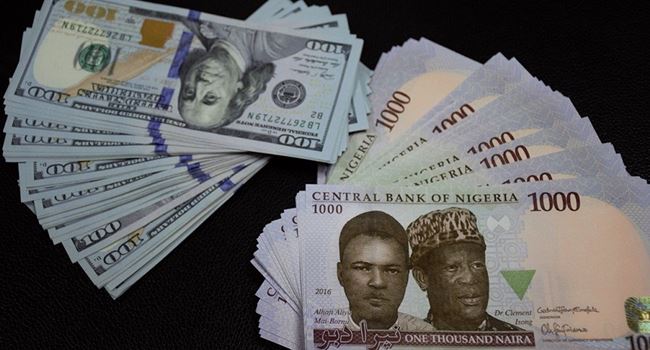

Glamtushhas obtained the official naira black market exchange rate in Nigeria today including the Black Market rates, Bureau De Change (BDC), and CBN rates. Please note that the exchange rate is subject to hourly fluctuations influenced by the supply and demand of dollars in the market. As of now, you can purchase 1 dollar at ₦758 and sell it at ₦763, however, it’s important to keep in mind that the rate can shift (either upwards or downwards) within hours.
| Dollar to Naira (USD to NGN) | Black Market Exchange Rate Today |
| Buying Rate | ₦758 |
| Selling Rate | ₦763 |
Foreign exchange rates play a vital role in the global economy, influencing trade, investments, and financial transactions. Understanding the factors that affect exchange rates is crucial for individuals and businesses operating in international markets. In this article, we will explore the key factors that influence foreign exchange rates and their implications.
Introduction
Foreign exchange rates refer to the value of one currency relative to another. These rates fluctuate continuously due to various factors that impact currency supply and demand. Let’s delve into the main factors that influence foreign exchange rates and shape the currency market.
Supply and Demand
The exchange rate between two currencies is primarily determined by the interaction of their supply and demand. When a currency is in high demand, its value tends to rise. Conversely, when there is an oversupply of a currency, its value may depreciate. Factors such as economic strength, investor sentiment, and market speculation influence the supply and demand dynamics of a currency.
Economic Factors
Economic indicators play a significant role in determining exchange rates. Factors such as Gross Domestic Product (GDP) growth, employment rates, inflation, and trade balance impact the value of a currency. Countries with strong economic performance and positive indicators often experience appreciation in their currency value.
Interest Rates
Interest rates set by central banks have a direct impact on exchange rates. Higher interest rates attract foreign investors seeking better returns, increasing the demand for the currency and causing it to appreciate. Lower interest rates can have the opposite effect, reducing demand and potentially leading to depreciation.
Inflation
Inflation refers to the increase in prices of goods and services over time. The level of inflation in a country affects its currency value. High inflation erodes the purchasing power of a currency, leading to depreciation. Conversely, low inflation or deflation can result in currency appreciation.
Political Stability
Political stability is an essential factor influencing exchange rates. Countries with stable political environments and effective governance tend to attract more investments, increasing the demand for their currency. On the other hand, political instability, social unrest, or geopolitical tensions can weaken a currency’s value.
Government Intervention
Governments and central banks often intervene in currency markets to manage their currency’s value. They may employ various strategies, such as buying or selling currencies, implementing capital controls, or adjusting interest rates. These interventions aim to stabilize exchange rates, support economic policies, or gain a competitive advantage in global trade.
Market Sentiment
Market sentiment, driven by investor confidence and risk appetite, significantly influences exchange rates. Positive market sentiment attracts investments and strengthens the demand for a currency, leading to appreciation. Negative sentiment, fueled by economic uncertainties or geopolitical risks, can cause a currency to depreciate.
Speculation and Investor Behavior
Speculation and investor behavior can introduce volatility to exchange rates. Currency traders and investors closely monitor economic data, news events, and technical indicators to make trading decisions. Their collective actions and expectations shape market sentiment, leading to short-term fluctuations in exchange rates.
Trade Balance
The trade balance, representing the difference between a country’s exports and imports, affects its currency value. A trade surplus, where exports exceed imports, can strengthen a currency. Conversely, a trade deficit, where imports surpass exports, may lead to currency depreciation.
Capital Flows
Capital flows, including foreign direct investment (FDI) and portfolio investment, impact exchange rates. Countries that attract substantial FDI and investment inflows generally experience currency appreciation. Conversely, capital outflows can put downward pressure on a currency’s value.
Natural Disasters and Geopolitical Events
Natural disasters and geopolitical events can disrupt economies and impact exchange rates. Significant events such as earthquakes, hurricanes, political unrest, or conflicts can create uncertainties and affect investor confidence. Consequently, these events may cause volatility in exchange rates.
Global Economic Trends
Global economic trends influence exchange rates, especially for major economies. The performance of leading economies, such as the United States, China, and the European Union, can impact currency values globally. Interconnectedness and trade relationships between countries play a crucial role in shaping exchange rate dynamics.
The interconnectedness of Currency Markets
Currency markets are interconnected, and exchange rates are influenced by the relationships between different currency pairs. For example, changes in the value of the US dollar can have a ripple effect on other major and minor currencies. Cross-currency correlations and the overall sentiment in currency markets contribute to the complex interactions between currency pairs.
Conclusion
Foreign exchange rates are influenced by a variety of factors, including supply and demand dynamics, economic indicators, interest rates, inflation, political stability, government intervention, market sentiment, speculation, trade balance, capital flows, natural disasters, geopolitical events, global economic trends, and the interconnectedness of currency markets. Monitoring and understanding these factors is essential for businesses, investors, and individuals operating in the international marketplace.
Iyabo Ojo has revealed that she was invited by the EFCC over money spraying at…
Okobi, Esomeju and Otaigbe will join global leaders to discuss sustainable finance and economic transition…
FirstBank and EStars have forged an innovative partnership to elevate Esports education. Glamtush reports…
Barbadian singer and actor, Rihanna revealed her third pregnancy at the Met Gala 2025. Rihanna…
Cascador and Sterling Bank have launched a breakthrough funding for Nigerian entrepreneurs. Glamtush reports…
Prominent city lawyer Shakeer Oshodi was honored with the prestigious SDNON Excellence in Legal Innovation…